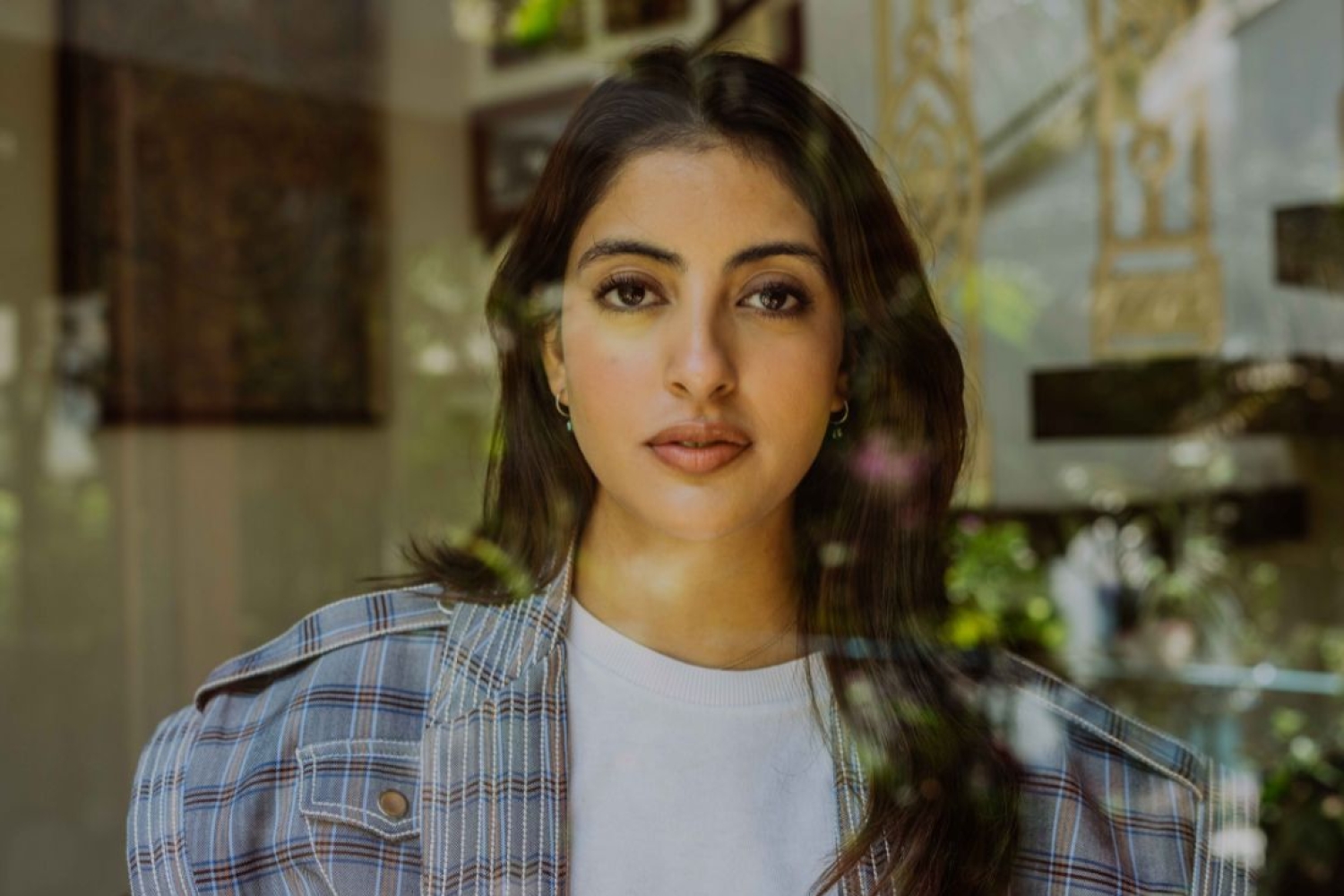

Navya Naveli Nanda stands at the intersection of technology and advocacy, driving change in the agri-machinery sector and championing women’s rights. At the core of her work is a commitment to India’s farmers and gender equality. Through Project Naveli, she tackles the pressing issue of women’s healthcare access, starting with menstrual health during the 2020 lockdown. Navya envisions a future where women’s independence is the norm, supported by men and women alike. Her goal for Project Naveli is to foster long-term, sustainable support for women, empowering them within their communities. Seeking to contribute further to women’s rights, Navya also started an intergenerational dialogue through her podcast What the Hell Navya. It is a candid platform with her mother, Shweta Bachchan-Nanda, and grandmother, Jaya Bachchan, aiming to create a safe space for women’s voices. It invites and explores the perspectives of three distinct generations. She is only 26 but her dedication and the tangible impact of her initiatives are powerful. Platform got in touch to know more.
From working in the auto-industry to creating content to being an advocate for women; where do you feel most yourself?
Both! The auto-industry, and specifically the agri-machinery industry does not have a large participation of women, on the shop-floor or in the field. Ironically though, up to 78% of India’s employed women work in agriculture (Annual Periodic Labour Force Survey, 2021- 2022). The agriculture industry in India is one of the largest we have, and one that is expected to continuously grow over the years. I feel a sense of pride in playing my part towards catering to farmers, who are the backbone of our nation with the best quality and technologically advanced products and services. Owning my femininity in an industry that does not have a large female input at a decision-making level is also extremely empowering for me. On the other hand, Project Naveli, where advocacy focuses on women’s rights, is a collaborative effort between both men and women, to continuously improve gender equality and one that is constantly improving in the country too.
In addition to your various other efforts, you also started podcast called What the Hell Navya. What was the inspiration?
My grandmother and mother are the two people with whom I have always shared a very strong bond; we talk and seek opinions from each other on many aspects of life. This podcast is an ode to the equation that the three of us share, and a small glimpse into our world of opinions and beliefs. I have a strong belief that we must, as women, create safe spaces for one another to express and communicate freely. I also believe that there are certain conversations that need to be had openly in society, through different mediums, so that we can start normalizing certain behaviours and trends. Our podcast tackles some of these very serious yet important topics, from the perspective of three different generations. I hope that this can be a starting point or conversation starter for those who listen in to the podcast, so as to continue the trend of normalising tough conversations and transparency. Over the course of the two seasons, I have grown as a person, professionally and personally and I think viewers and listeners can see that as well; I have a lot more to say, and with a lot more certainty. I hope that people would want us to come back for a season 3, and if so I would love to invite guests on the show who are from different fields and backgrounds, it would add more to our conversation.
Project Naveli’s inception marked a significant stride towards addressing a pressing issue. Could you talk about the core challenge that was the starting point of this noble venture?
Project Naveli was founded in 2020 during the lockdown, during which our efforts were solely focused on women’s access to healthcare, specifically in menstrual health. At the time, there was a lack of accessibility to maternity and menstrual health services, which is where our efforts began.
What sort of world do you imagine for women?
One where we are able to make decisions independently and freely. One where we work together to continue giving more women that independence. And one where men can play a large part in creating this ecosystem and environment.
What’s your vision for Project Naveli over the next few years?
I would like to see Project Naveli continuing to create programs and initiatives that think outside the box, in terms of moving beyond just a one-time financial grant to beneficiaries towards a more sustainable form of impact, that is also long term. I would want us to further grow our community so that we can continue building supportiveecosystems for women to foster and grow in.
Why do you do what you do?
I strongly believe that we all have a responsibility to leave society a better place than we found it. As women, and as citizens of our country, it is a responsibility we have to give back. And this is me playing my part in that journey!
This is an all exclusive excerpt from our May 2024 Bookazine. To read the entire article, grab your copy here.
Words Hansika Lohani
Photography Abhinav Anguria
Date 28.05.2024